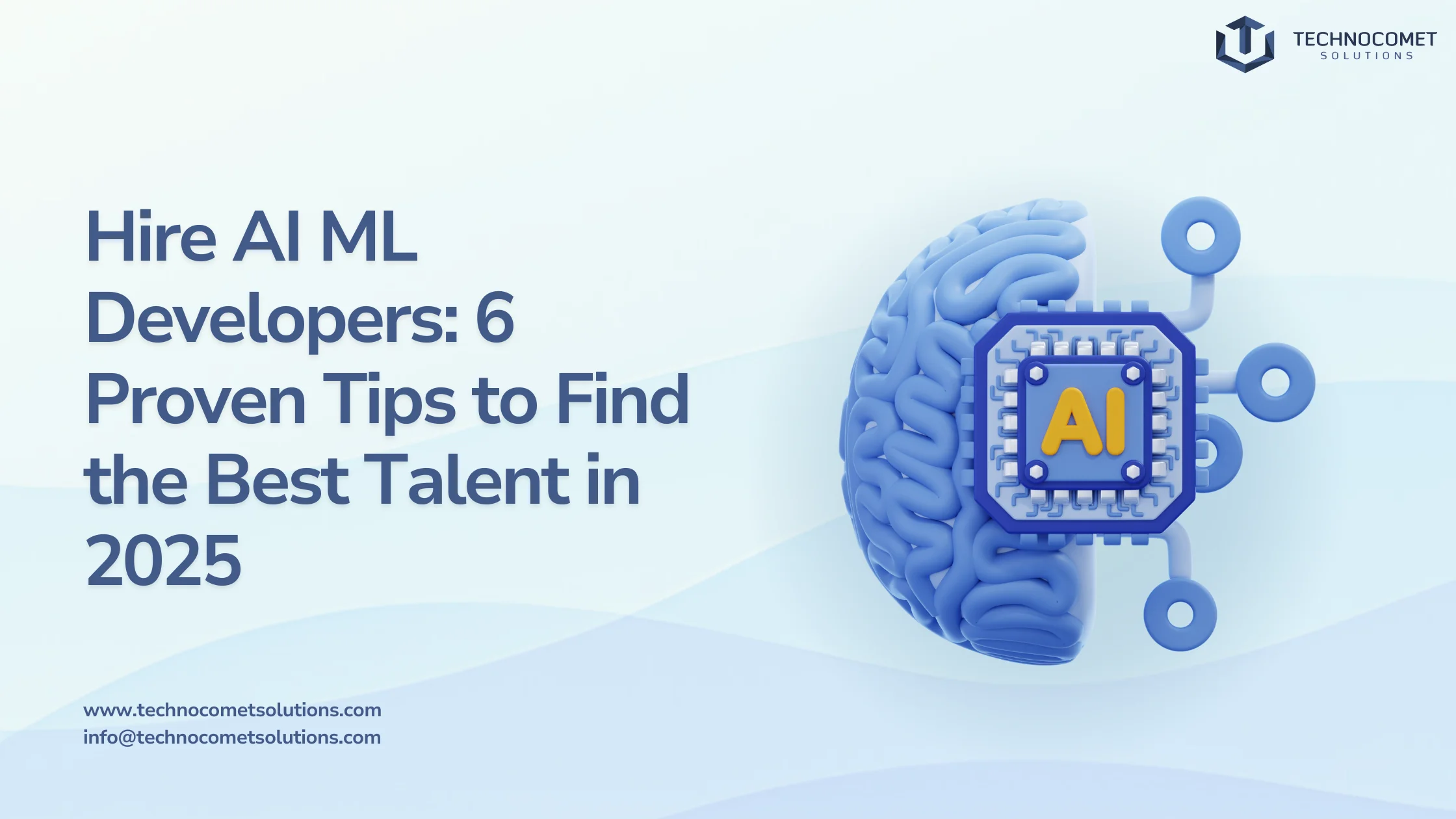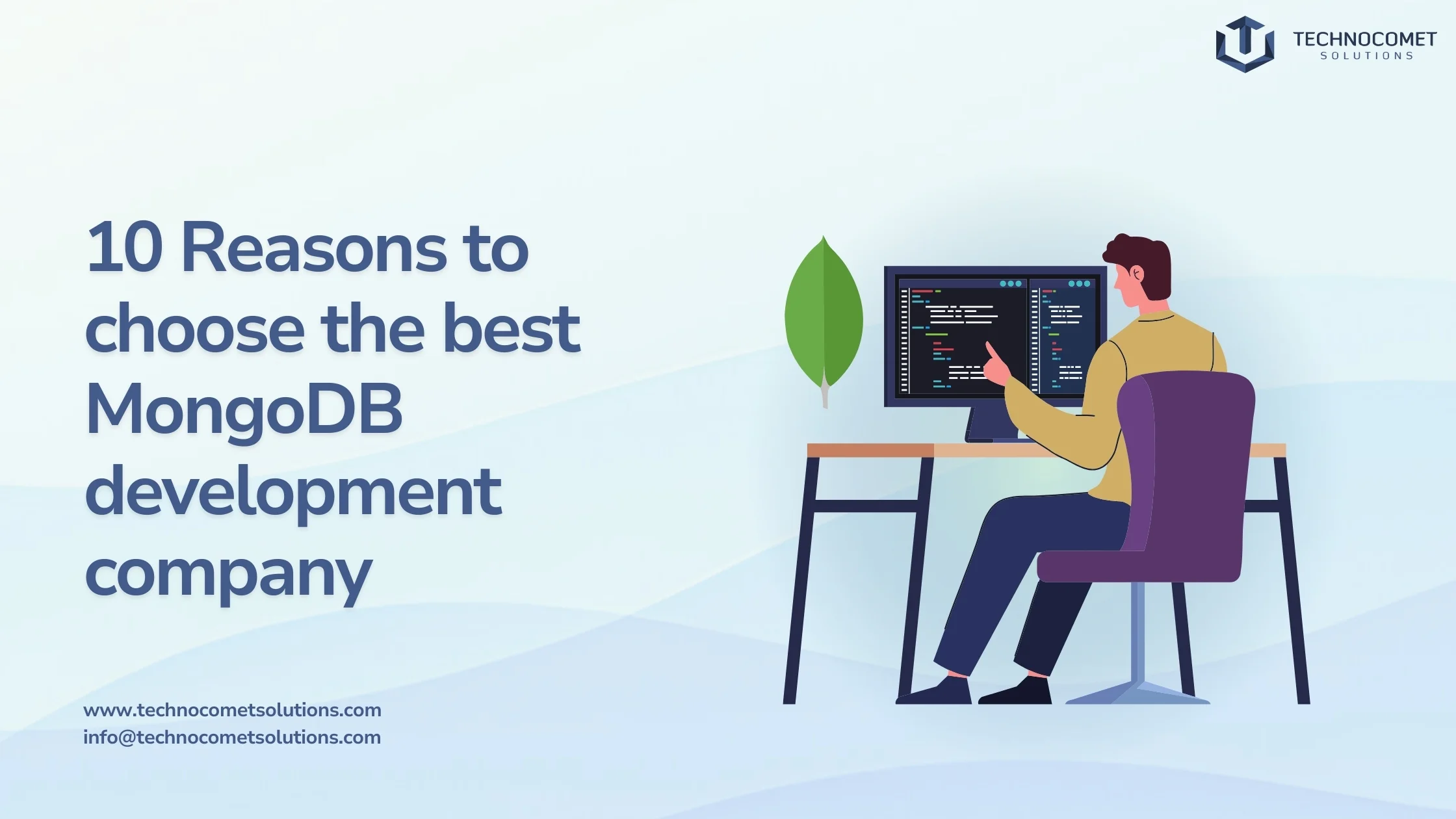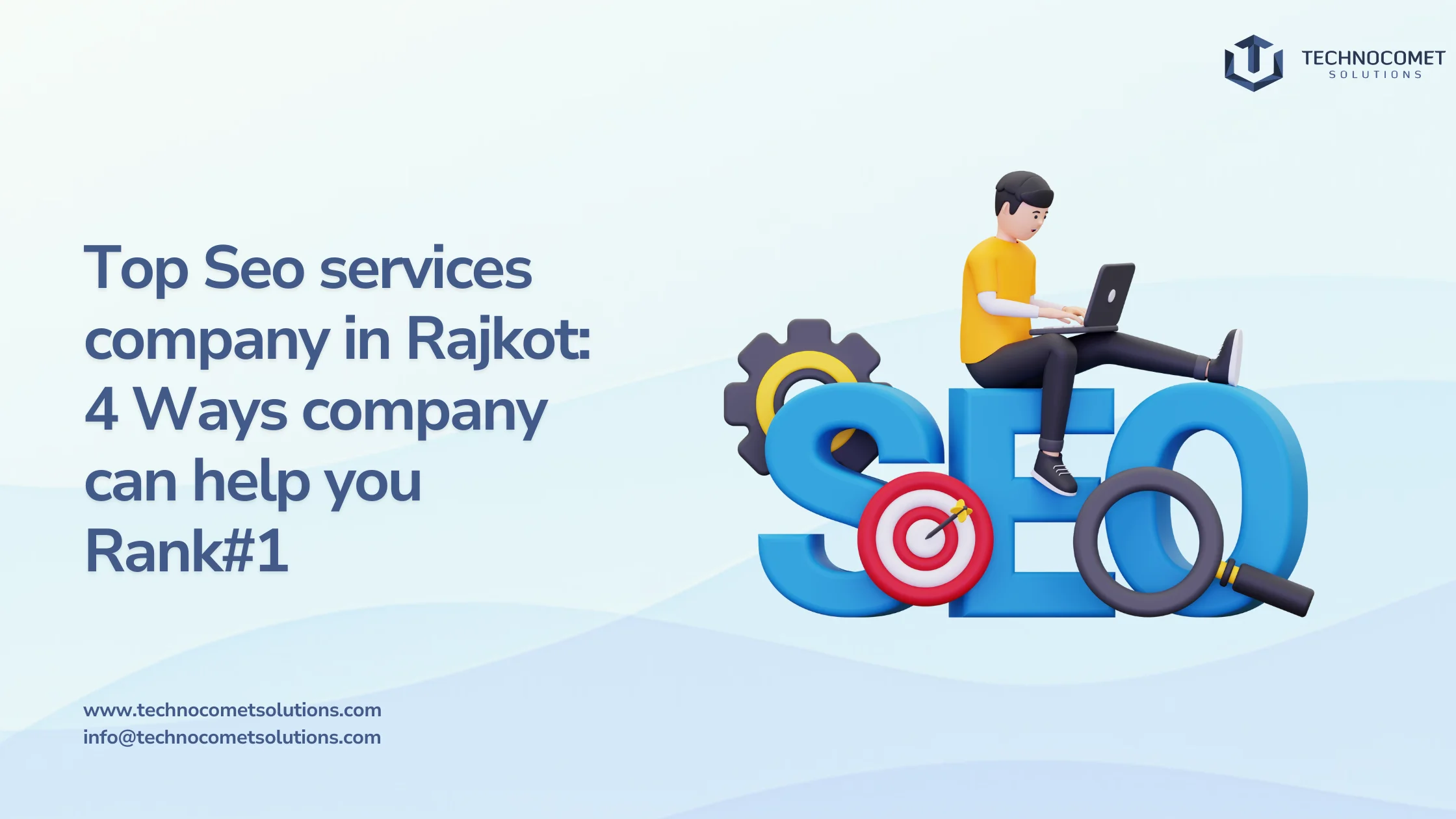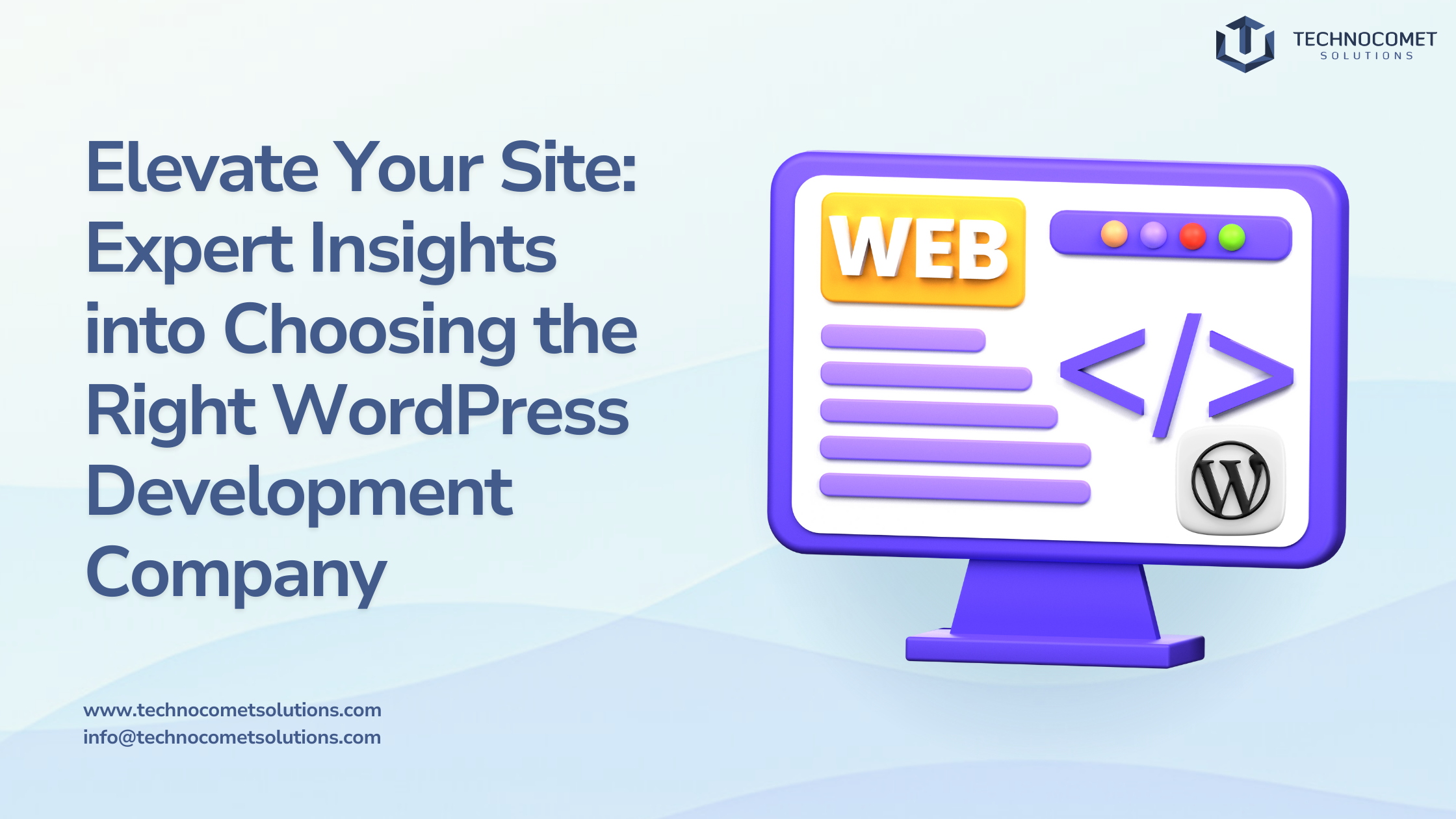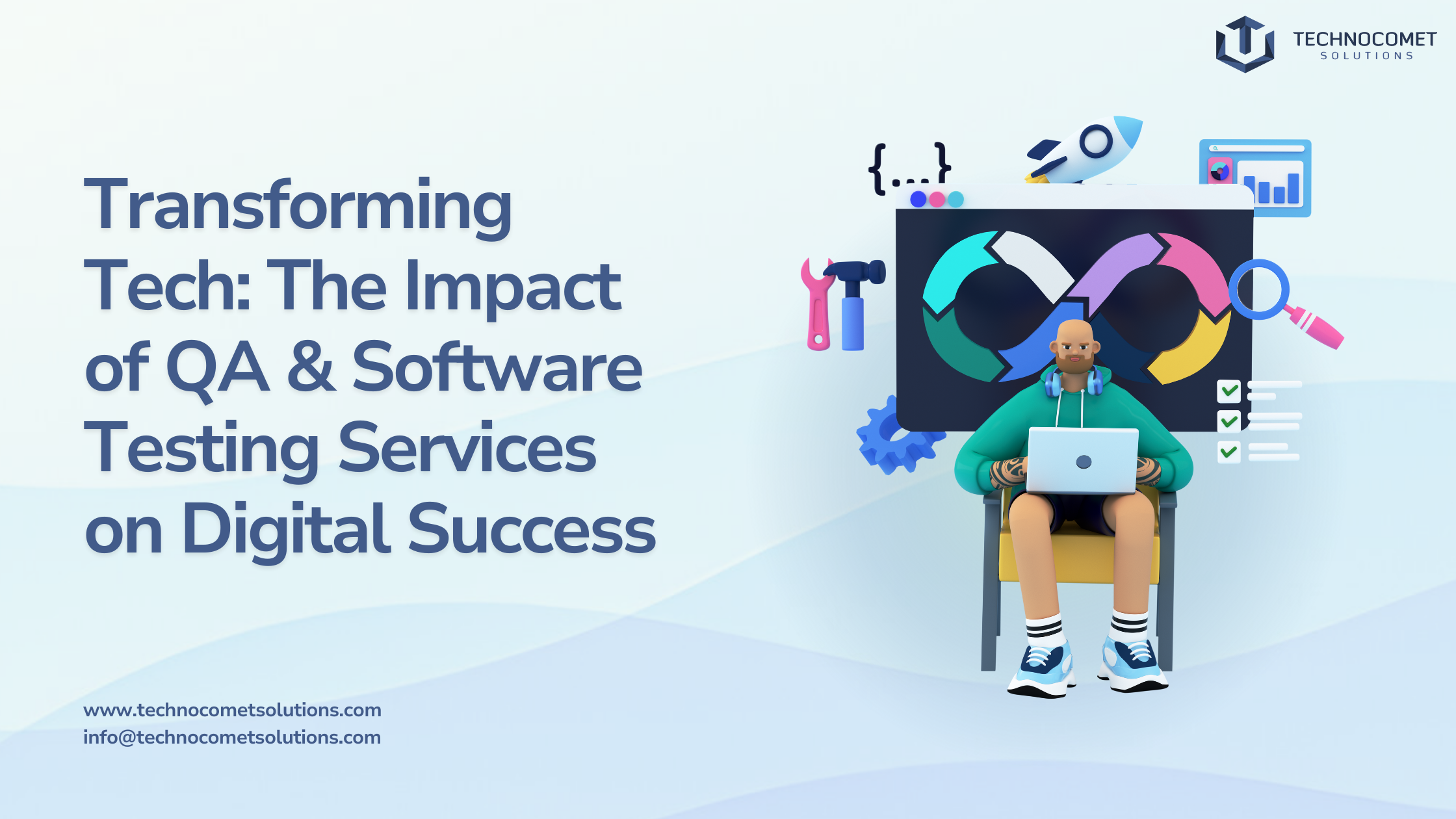Introduction
Hire AI/ML developers to harness the power of artificial intelligence and machine learning, two transformative forces reshaping industries and driving innovation worldwide. In 2025, the global AI market is expected to grow at an annual rate of 37%, reaching a staggering $305.9 billion by the end of the year. Businesses across sectors are increasingly adopting AI/ML technologies to optimize operations, enhance customer experiences, and gain competitive advantages. Looking for expert AI/ML solutions? Technocomet Solutions can help you build cutting-edge AI applications customized to your business needs. Generative AI, in particular, is gaining traction, with 51% of companies using it for content creation, customer support, and process automation. This rapid adoption underscores the importance of hiring skilled AI/ML developers who can design and implement cutting-edge solutions customized to specific business needs.
In this blog, we’ll explore the key skills to look for when hire AI/ML developers and why expertise matters. We’ll also discuss industry trends, the impact of AI on businesses, and best practices for building a strong AI team. Whether you’re a startup or an enterprise, understanding how to choose the right AI/ML talent can give you a competitive edge.
The Rising Demand for AI and ML Developers in 2025
The demand for AI and ML developers in 2025 is reaching unprecedented levels. With the global AI market projected to grow annually by 37%, businesses are increasingly investing in AI-driven solutions to stay competitive. This surge is evident across industries, from healthcare to e-commerce, where AI and ML are transforming operations and enhancing customer experiences. Companies looking to hire AI/ML developers understand that these professionals are critical for driving innovation, automating processes, and unlocking the potential of big data. As organizations allocate up to 20% of their tech budgets to AI, hiring skilled developers is no longer optional; it’s a strategic necessity. As AI adoption accelerates, businesses that fail to keep up risk losing their competitive edge.
The shift toward automation and predictive analytics is pushing industries to rethink their operational models. AI-powered applications are streamlining everything from supply chain management to personalized marketing strategies. The companies that invest early in AI talent will position themselves as leaders in this technological revolution.
How AI and ML Are Transforming Industries Worldwide
AI and ML technologies are reshaping industries globally, creating smarter systems that streamline operations and improve decision-making. In healthcare, AI-powered diagnostics are revolutionizing patient care, while in finance, ML models predict market trends with remarkable accuracy. The generative AI market alone is expected to hit $1.3 trillion by 2032, showcasing its transformative impact on content creation and process automation. Businesses that hire AI/ML developers can leverage these technologies to optimize workflows, enhance customer satisfaction, and gain a competitive edge in their respective sectors. From retail to manufacturing, AI is driving efficiency and innovation at an unprecedented scale.
In logistics, AI-driven route optimization is cutting costs and improving delivery times. Companies are also using ML-powered fraud detection systems to safeguard financial transactions. As these advancements continue, AI is no longer just a competitive advantage; it’s becoming a fundamental pillar of modern business operations.
Why Hiring the Right AI/ML Developers Is Crucial for Business Success
Hiring the right AI/ML developers is essential for achieving business success in today’s data-driven world. These experts play a pivotal role in implementing solutions that align with organizational goals while addressing challenges like scalability and ethical AI practices. Skilled developers ensure that businesses can harness the full potential of AI technologies while mitigating risks such as bias or security vulnerabilities. To hire AI/ML developers who can deliver impactful results, companies must focus on evaluating technical expertise, industry experience, and adaptability. Businesses must also prioritize hiring professionals who stay updated on the latest advancements in AI frameworks and tools.
Continuous learning and adaptability are key traits of top AI talent. By investing in the right AI/ML experts, companies can future-proof their operations and remain at the forefront of technological innovation.

Understanding the Role of AI/ML Developers
Key Responsibilities and Skills of AI/ML Developers
AI/ML developers are responsible for designing algorithms that enable machines to learn from data and make intelligent decisions. Their expertise spans programming languages like Python, R, and Java; machine learning frameworks such as TensorFlow and PyTorch; and data modeling techniques essential for building robust systems. When businesses hire AI/ML developers, they gain access to professionals capable of developing predictive models, automating processes, and solving complex problems efficiently. Beyond technical skills, AI/ML developers must also possess strong analytical thinking and problem-solving abilities. Their role involves processing large datasets, fine-tuning algorithms, and optimizing AI models for real-world applications.
The demand for AI-driven automation is increasing across industries, making skilled developers a crucial asset for companies. With AI integration becoming a business priority, hiring the right professionals can significantly impact innovation and efficiency.
How AI/ML Experts Drive Innovation in Businesses
AI/ML experts drive innovation by leveraging data to uncover insights that lead to groundbreaking solutions. For example, generative AI enables businesses to create personalized content at scale, while transfer learning accelerates model development across diverse applications. Companies that hire AI/ML developers benefit from their ability to integrate advanced technologies into existing workflows, fostering creativity and improving operational efficiency. These professionals play a key role in predictive analytics, helping companies anticipate market trends and customer behaviors. AI-powered automation is revolutionizing industries by streamlining repetitive tasks and enhancing decision-making.
Businesses that invest in AI talent can explore new revenue streams, optimize resource allocation, and stay ahead of the competition. The ability to implement AI effectively is now a defining factor for long-term success.
The Importance of Staying Updated with Evolving AI Technologies
The rapid evolution of AI technologies makes it imperative for developers to stay updated with the latest advancements. Continuous learning ensures they can implement cutting-edge solutions like autonomous agents or quantum computing applications. Businesses aiming to hire AI/ML developers should prioritize candidates committed to professional growth, as this adaptability is key to maintaining a competitive edge in dynamic markets. AI-driven innovations such as federated learning, reinforcement learning, and neural architecture search are shaping the future of machine learning. Developers who stay ahead of these trends can create smarter, more efficient AI models customized to business needs.
Companies should encourage AI teams to engage in research, attend industry conferences, and upskill regularly. By fostering a culture of continuous learning, organizations can build AI solutions that are not only relevant today but also future-proof.
Defining Your Project Requirements Clearly
Identifying the Scope and Objectives of Your AI/ML Project
Defining clear project requirements is the first step toward successful implementation. By identifying specific objectives, such as enhancing customer experiences or optimizing supply chains, businesses can communicate their needs effectively when they hire AI/ML developers. This clarity ensures alignment between organizational goals and technological solutions. A well-defined scope helps prevent scope creep, ensuring that projects stay on track and within budget. Businesses should establish key performance indicators (KPIs) to measure success and set realistic milestones for AI/ML deployment.
Clear objectives also improve collaboration between developers and stakeholders, streamlining decision-making throughout the project. Additionally, companies should consider scalability from the outset, ensuring that AI solutions can evolve alongside business growth.
Choosing the Right AI/ML Technologies for Your Business Needs
Selecting appropriate technologies is crucial for achieving desired outcomes. For instance, generative AI excels in content creation, while IoT integration supports real-time analytics. Companies should collaborate with experts when choosing tools that match their objectives before they hire AI/ML developers with relevant experience. Understanding the strengths and limitations of AI/ML technologies is key to making informed decisions. Businesses should evaluate factors such as computational power, data availability, and integration capabilities when selecting AI tools.
Additionally, organizations must prioritize security and compliance, ensuring that AI implementations adhere to industry regulations. Investing in the right technology stack helps maximize efficiency, reduce development costs, and accelerate time-to-market.
Understanding the Difference Between AI Engineers, Data Scientists, and ML Specialists
Understanding the distinctions between AI engineers, data scientists, and ML specialists is crucial when businesses seek to hire AI/ML developers suited to their specific needs. AI engineers focus on building intelligent systems, integrating machine learning models into applications, and ensuring seamless automation. Data scientists specialize in analyzing vast datasets to extract actionable insights, helping organizations make data-driven decisions. On the other hand, ML specialists design algorithms that enable machines to learn autonomously, refining models to improve accuracy and efficiency over time. Recognizing these differences ensures optimal team composition for complex AI/ML projects, allowing businesses to leverage the right expertise for successful implementation.
AI engineers handle the technical implementation, while data scientists derive insights from large data pools. ML specialists fine-tune learning models, improving performance over time. By clearly defining roles and responsibilities, businesses can create AI-driven solutions customized to their unique requirements.
Where to Find the Best AI/ML Developers
Exploring Top AI/ML Job Platforms and Freelance Networks
Platforms like LinkedIn, GitHub, Upwork, and Toptal offer access to skilled professionals worldwide. Businesses seeking cost-effective solutions often turn to freelance networks or job boards specializing in tech roles. These platforms provide a diverse talent pool, allowing companies to find experts with the exact skill sets they need. To hire AI/ML developers, businesses should evaluate profiles based on project experience, ratings, and client reviews. Posting clear job descriptions with detailed expectations can help attract the right candidates.
Additionally, companies should conduct technical assessments to ensure freelancers or remote developers possess the required expertise. A well-structured hiring process ensures that businesses find professionals who align with their project goals.
The Benefits of Hiring from AI/ML Development Companies
Hiring through established development firms provides access to experienced teams equipped with advanced tools and methodologies. These companies often have proven track records in delivering high-quality projects within tight timelines. Partnering with an AI/ML development company can significantly reduce project risks while ensuring scalability. Reputable firms offer dedicated teams, ensuring continuous support throughout the AI/ML implementation process. Businesses benefit from structured workflows, professional project management, and expertise across multiple domains.
Moreover, AI development companies stay updated with industry advancements, incorporating the latest AI techniques into their solutions. This approach enhances efficiency and ensures long-term success in AI-driven initiatives.
Leveraging LinkedIn, GitHub, and AI Conferences for Talent Scouting
LinkedIn allows recruiters to connect directly with candidates showcasing relevant skills or contributions. GitHub portfolios provide insight into coding expertise, ideal for assessing technical proficiency before hire AI/ML developers who fit organizational needs. Attending AI conferences and networking events further enhances the hiring process. Industry conferences like NeurIPS, CVPR, and AI Summit bring together top AI/ML professionals, offering businesses opportunities to scout talent.
Engaging in AI communities and participating in hackathons can also help companies identify innovative minds. By leveraging multiple sourcing strategies, businesses can build a strong AI/ML team capable of driving innovation and achieving strategic goals.
Evaluating Technical Skills and Problem-Solving Abilities
Essential Programming Languages and Frameworks AI/ML Developers Should Know
When hire AI/ML developers, it is crucial to ensure they are proficient in essential programming languages that drive innovation in artificial intelligence and machine learning. The most sought-after languages include Python, widely regarded as the go-to language for machine learning due to its simplicity and extensive libraries such as NumPy, Pandas, and Scikit-learn. Companies looking to hire AI/ML developers should prioritize candidates with strong Python skills, as this language facilitates rapid development and prototyping. R is particularly favored in statistical analysis and data visualization, making it essential for developers focusing on data-heavy projects.
Its portability and scalability make it a preferred choice for enterprise-level solutions. C++, while not as common as Python or R in the AI space, is crucial for performance-intensive applications. Developers with C++ skills can optimize algorithms and enhance the efficiency of machine learning models. Understanding these programming languages is vital when organizations seek to hire AI/ML developers who can deliver high-quality solutions customized to their specific needs.
Testing Real-World Problem-Solving Skills Through Coding Challenges
To effectively evaluate candidates, companies should implement coding challenges that reflect real-world scenarios they may encounter in their roles as AI/ML developers. These challenges should focus on assessing problem-solving skills rather than just theoretical knowledge. For instance, asking candidates to modify existing code or develop algorithms based on specific requirements can provide insight into their practical abilities. As noted by industry experts, evaluating how candidates approach these challenges reveals their thought processes and adaptability, key traits for successful AI/ML developers.
Additionally, incorporating assessments that require candidates to document their use of AI tools during coding tasks can help gauge their understanding of these technologies. This approach ensures that businesses hire AI/ML developers who not only possess technical skills but also know how to leverage tools effectively.
Assessing Experience with Cloud Platforms, Data Modeling, and Automation
As businesses increasingly migrate to cloud environments, experience with cloud platforms such as AWS, Azure, or Google Cloud becomes essential for hire AI/ML developers. Candidates should demonstrate familiarity with deploying machine learning models in cloud settings, ensuring scalability and accessibility. Moreover, proficiency in data modeling techniques is critical for ensuring the efficacy of the data used to train machine learning models. Developers should be adept at designing data pipelines that efficiently process and prepare data for analysis.
Automation skills are also increasingly important; candidates should show experience in automating workflows related to model training and deployment. This expertise not only enhances efficiency but also allows organizations to scale their AI initiatives effectively.
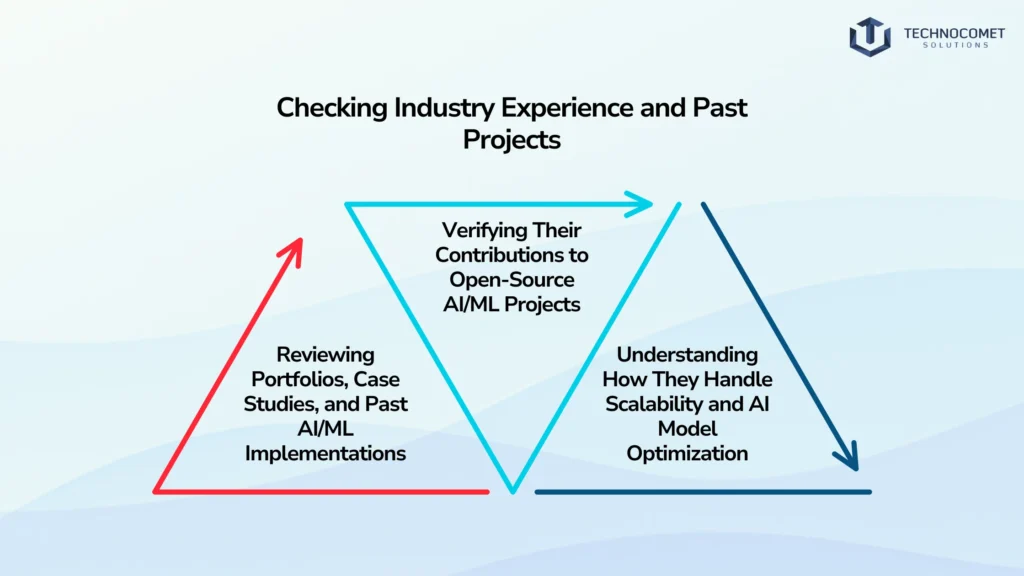
Checking Industry Experience and Past Projects
Reviewing Portfolios, Case Studies, and Past AI/ML Implementations
When hiring AI/ML developers, reviewing portfolios and case studies of past projects is vital for assessing their capabilities. Candidates should provide tangible evidence of their work, successful implementations of machine learning models that demonstrate their problem-solving skills and technical expertise. Look for significant project successes where candidates have applied machine learning techniques to real-world problems.
This includes projects that resulted in measurable outcomes, such as improved efficiency or enhanced customer experiences. Understanding the context of these projects helps employers gauge how well candidates can adapt their skills to meet specific business needs when they hire AI/ML developers.
Verifying Their Contributions to Open-Source AI/ML Projects
Contributions to open-source projects can be a strong indicator of a candidate’s commitment to continuous learning and collaboration within the AI community. Reviewing a candidate’s GitHub profile or contributions to platforms like Kaggle provides insight into their coding abilities and willingness to engage with others in the field.
Candidates who actively participate in open-source projects often bring fresh perspectives and innovative ideas that can benefit your organization. By hiring AI/ML developers with a history of contributions to open-source projects, companies can tap into a network of passionate professionals dedicated to advancing the field.
Understanding How They Handle Scalability and AI Model Optimization
Inquiring about candidates’ experiences dealing with scalability issues in previous projects and how they approached optimizing models for performance under varying loads is critical information for hire AI/ML developers. Candidates should demonstrate an understanding of techniques such as hyperparameter tuning and model selection that enhance performance without compromising accuracy.
Additionally, assessing how candidates have tackled challenges related to deploying models at scale reveals their problem-solving capabilities. Organizations benefit from hiring AI/ML developers who can ensure that solutions remain effective even as data volumes grow or user demands shift.
Assessing Soft Skills and Team Collaboration
The Importance of Strong Communication Skills in AI/ML Projects
Strong communication skills are essential for successful collaboration on any project involving multiple stakeholders, especially when explaining complex technical concepts to non-technical team members or clients. Candidates should demonstrate an ability to articulate their ideas clearly, ensuring alignment between technical teams and
To hire AI/ML developers, consider conducting interviews that assess their communication abilities through situational questions or group discussions. This approach helps identify candidates capable of fostering collaboration within cross-functional teams.
Evaluating Their Ability to Work in Cross-Functional Teams
AI projects often require collaboration across various departments; therefore, assessing candidates’ experiences working within cross-functional teams can provide valuable insights into their interpersonal skills. Look for candidates who have successfully collaborated with product managers, designers, or business analysts on previous projects.
Candidates who thrive in team settings are more likely to contribute positively to your organization’s culture while driving successful outcomes in AI initiatives when you hire AI/ML developers.
Ensuring Adaptability to New AI Trends and Project Requirements
Given the fast-paced nature of technology advancements within this field, it’s important that candidates demonstrate adaptability; being open-minded towards new tools or methodologies will benefit your projects significantly. Inquire about instances where candidates have had to pivot or learn new technologies quickly due to evolving project requirements.
Candidates who show a willingness to embrace change are better equipped to handle the dynamic nature of AI development environments when you hire AI/ML developers who can grow alongside your organization’s needs.
Conclusion
As we look ahead into 2025, hire AI/ML developers will be crucial for businesses aiming at leveraging artificial intelligence effectively within their operations; the right talent can drive innovation while ensuring successful implementation across various sectors! By understanding how best to hire these professionals, from defining project requirements clearly to evaluating both technical skills and soft skills, you’ll position yourself ahead of competitors eager not just merely to adopt but to excel using transformative technologies like artificial intelligence & machine learning! Thus, remember: if you’re serious about integrating cutting-edge solutions into your business strategy, make sure you prioritize efforts around how best to hire qualified individuals who specialize specifically within this domain! By doing so, you will not only enhance your team’s capabilities but also ensure sustainable growth through innovative solutions customized precisely for your unique business needs!
For businesses looking to harness the power of artificial intelligence, hiring the right talent is crucial. At Technocomet Solutions, we specialize in providing the best IT services to meet your needs. Whether you’re seeking to hire AI/ML developers or need guidance on integrating advanced technologies into your operations, our team is here to help you succeed in this rapidly evolving landscape. Contact us today!
FAQs
When hiring AI/ML developers, it’s essential to look for candidates with a strong educational background in computer science, data science, or related fields. Additionally, proficiency in programming languages such as Python and R, experience with machine learning frameworks like TensorFlow and PyTorch, and a solid understanding of algorithms and data structures are crucial.
To effectively assess the skills of AI/ML developers, consider implementing coding challenges that reflect real-world problems they may encounter in their roles.
You can find qualified AI/ML developers through various channels, including job boards like LinkedIn and Glassdoor, freelance platforms like Upwork, and specialized recruitment agencies. Networking at AI conferences and meetups is also an effective way to connect with talented professionals in the field.
Hiring AI/ML developers with industry experience is vital because they bring valuable insights into specific challenges and requirements within your sector. Experienced developers understand the nuances of implementing AI solutions effectively and can navigate potential pitfalls more efficiently.

